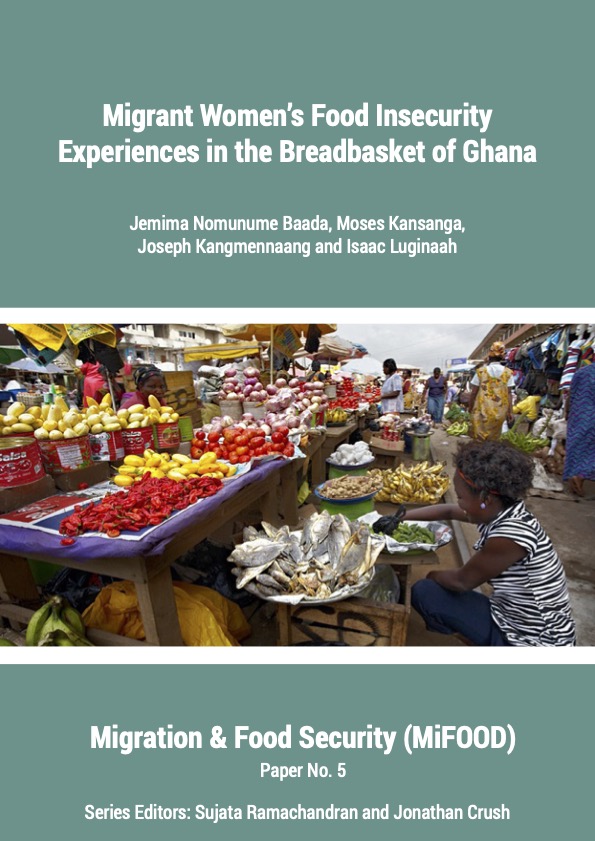Migration has become a safety net for smallholder farmers across Africa in response to rapidly deteriorating climatic conditions and the resulting low agricultural productivity. In semi-arid northern Ghana, especially the Upper West Region, many people migrate to rural farming communities in the Middle Belt of the country – popularly referred to as Ghana’s breadbasket – to meet their food security needs. In recent times, there has been an increase in the involvement of women in these migration patterns. This notwithstanding, many studies on migration and food security in Ghana continue to focus on the experiences of households or male migrants, leading to a dearth of knowledge about migrant women’s food insecurity experiences. Using a cross-sectional study design and northern Ghana as a survey case study (n=504), we employed generalized linear latent and mixed models (gllamm) in this paper to examine the key determinants of the food insecurity experiences of migrant women with emphasis on their length of stay. Food insecurity was measured using a modified version of the Household Food Insecurity and Access Scale (HFIAS). Our findings demonstrate that, even after migrating, women face several barriers that continue to predispose them to food insecurity, including lack of social support and autonomy. Given the general lack of empirical evidence on the food security experiences of women migrants, this analysis generates insights on the correlates of food insecurity among women migrants and, more broadly, the value of migration as a fallback strategy for navigating food security among women.

